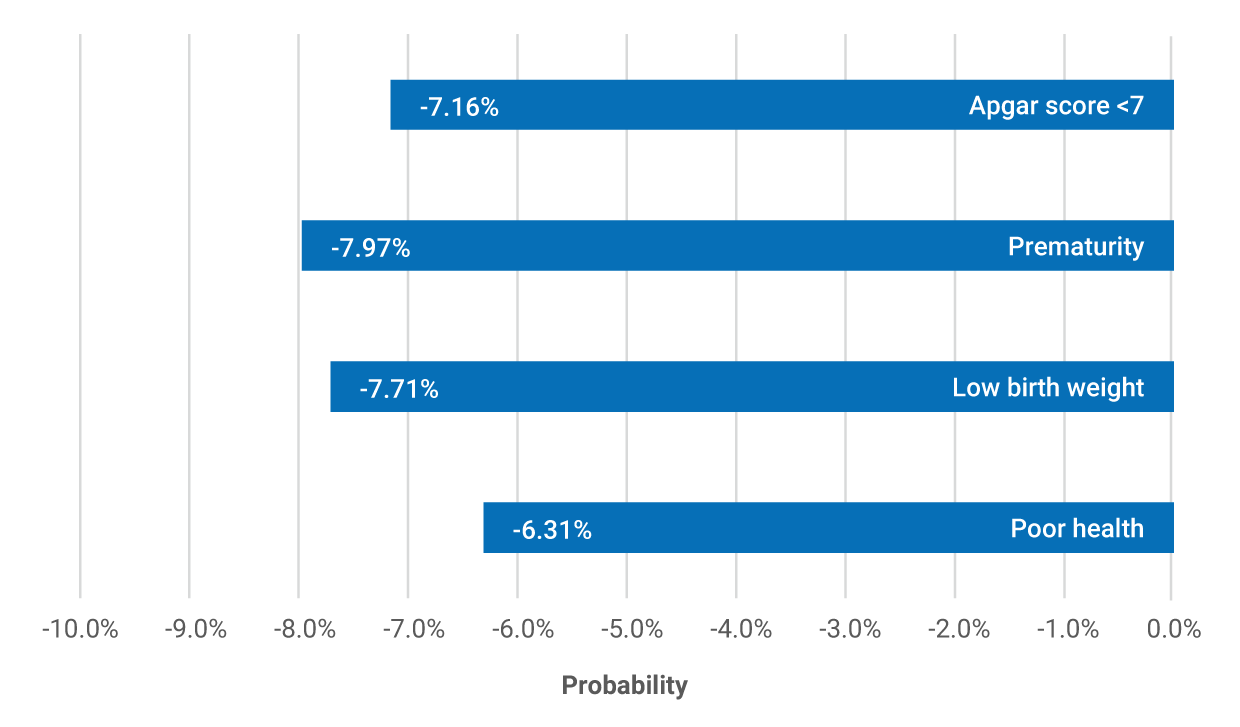An understudied aspect of healthcare systems is the impact of the quality of the medical staff on the health performance of system users. A research paper in which Christian Posso (senior economist at Banco de la República) participated, and whose results were recently published in the series Working Papers on Economics, particularly studies the impact of physicians' skills on people's health in Colombia. Specifically, the study assesses the effect of differences in professional skills of physicians with similar training on the health of newborn babies under their care.
To answer the research question, researchers analyzed the Mandatory Social Service (SSO in Spanish) program of the Ministry of Health and Social Protection. In 2013 and 2014, the program randomly assigned newly graduated physicians to different local health centers (LHC) nationwide. Thus, the assignment of physicians to different rural LHCs resembles an experiment, allowing the assessment of causal effects on patient health outcomes.
For the study, an innovative dataset was created, linking seven cohorts of this SSO program with different administrative databases and collecting information from physicians and newborns. In the case of physicians, socioeconomic information was collected from their families and from the university from which they graduated. Information was also collected from the Saber Pro medicine tests applied by the Colombian Institute for the Promotion of Higher Education (ICFES in Spanish), which serves as a measure of their ability. Variables at birth were collected through the vital statistics of the National Administrative Department of Statistics (DANE in Spanish) to measure the babies’ health.
The empirical analysis was based on econometric models that infer the effect of physicians' Saber Pro test scores on the observed health of babies born under their care. The estimation results exhibit that one standard deviation of the assigned physician's Saber Pro test score decreases the probability of poor health of newborn babies by 6.3%. Specifically, as illustrated in Graph 1, a one standard deviation increase in the score decreases the probability of low birth weight, preterm births, and babies with low Apgar scores, a specialized index that groups other measures of perinatal health. Additionally, these beneficial effects of physician quality are significantly more pronounced for babies born to vulnerable mothers. It should be noted that all the results are statistically significant and discount the effect of other factors that may affect newborns’ health, such as the size of the municipality and hospital, the proportion of low birth weight and premature infants in the hospital in 2012, the newborn’s sex, and the mother's education, age, and marital status.
The study's main conclusion is that physicians with higher medical skills add significantly more value to the health of newborns, regardless of their context. This result highlights the importance of medical training and its promotion for the welfare of society. An additional public policy implication is that the quality of physicians may reduce socioeconomic gaps for patients before they are born.
Graph 1. Relative effect of a one standard deviation increases in physicians' Saber Pro test scores on the health of newborn babies under their care.














































